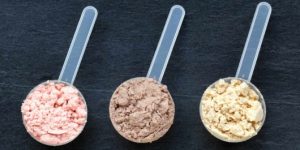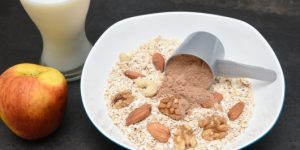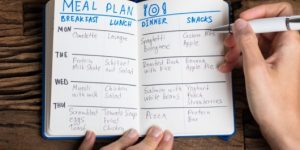We all feel a little bloated sometimes, which can be very uncomfortable and even embarrassing. The causes of a poor digestive system can include stress, poor diet, emotional disturbances, genetics, allergies, intolerances and infection. Luckily, a few simple changes to your diet can dramatically improve your digestive system.
[spoiler title=”tl;dr – click to read summary” style=”fancy”] Being bloated is a problem that should be addressed if you don’t want your day to be interrupted by this digestive problem. To avoid this problem, you need to have a lot of fluid intake such as water and tea all throughout the day. Choose foods that are easy to digest. Also, make sure that you have regular physical activities because this can help you maintain a healthy body and it can also help improve your digestion. [/spoiler]
Say No to Bloat
- Avoid refined starches – White bread, cakes, cookies and mashed potato can all make digestive problems such as bloating and constipation worse. Rather, choose higher fibre, less refined starches such as seed bread, jacket potatoes, oats and bran flakes.
- Drink enough water – Water is essential for proper digestion. Therefore not drinking enough water can exacerbate constipation and bloating. You should be having at least 8 glasses of water per day.
- Try removing the skins of fruits and vegetables – The fibre in the fruit and vegetable skins you eat can be hard to digest. Removing them will help in easier digestion.
- Avoid fatty foods – A high fat intake can exacerbate diarrhea and bloating. Therefore, keep fried or greasy foods to a minimum.
- Avoid artificial sweeteners and sodas – These can both make bloating worse, and sweeteners can also cause diarrhea. Instead of drinking soda, drink water and herbal teas.
- Avoid those vegetables that can most likely bloat you – Veggies such as cabbage, broccoli, lettuce and Brussels sprouts can all lead to bloating. Therefore either avoid them, or limit from your intake of these vegetables.
- Take probiotics – These are “good bacteria,” which are found naturally in the gut and help the body digest food. However, their levels may be reduced by stress, infection, antibiotic use, or incorrect diet. Replacing these bacteria has been found to aid digestive function and to improve symptoms such as bloating, abdominal pain, constipation, diarrhea and flatulence. Probiotics are available in various forms (e.g. capsules and sprays) from most pharmacies.
- Try peppermint tea – Peppermint tea is great for improving digestion and it naturally prevents bloating.
- Try a natural fibre supplement – Look for one which is made from inulin or psyllium. This type can greatly improve digestion.
- Avoid spicy foods – These can be hard to digest and they can prove hazardous for those who suffer from bloating or diarrhea.
- Be wary of sushi – Sushi is very low in fat, but can cause bloating, as one often swallows a lot of air during eating. In addition, the tightly packed rice in sushi tends to swell during digestion, which can also cause bloating.
- Exercise regularly – Regular physical activity not only helps keep you fit, but also ensures your regular bowel movements. Exercise also helps you to distress, which in turn can dramatically improve your digestion. Try yoga or Tai Chi to get the best distressing benefits of these physical activities.
- Avoid laxatives – It is very easy to become dependent on these medications and therefore they should only be used as a last resort! Rather, try to get into a pattern of eating enough fibre, drinking enough water and exercising regularly and laxatives should prove unnecessary.
It is clear that a healthy digestive system is possible with just a few simple lifestyle changes!



